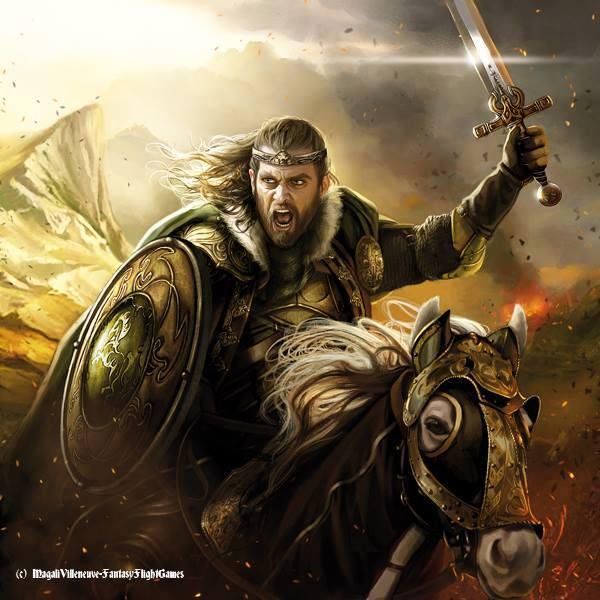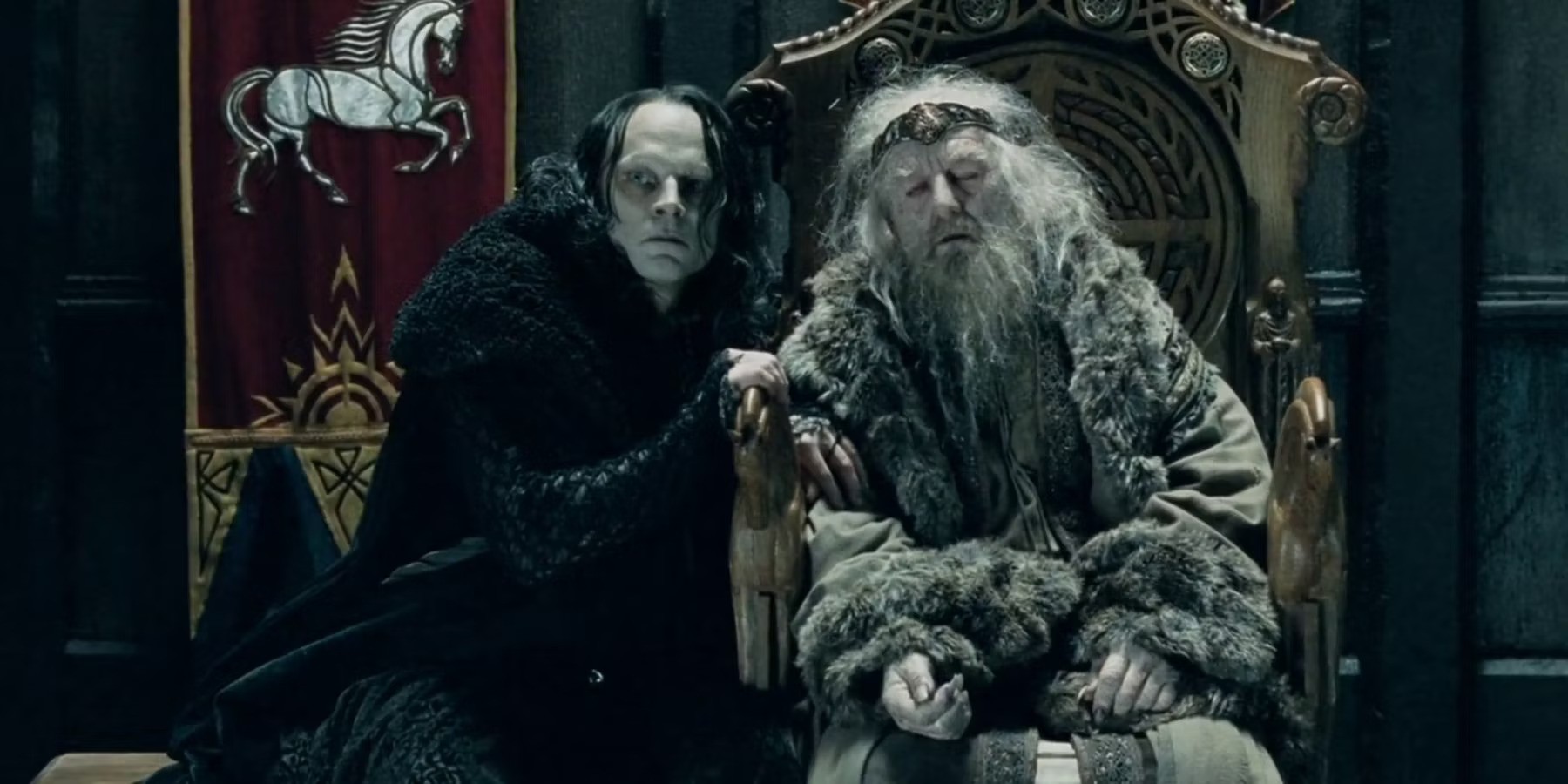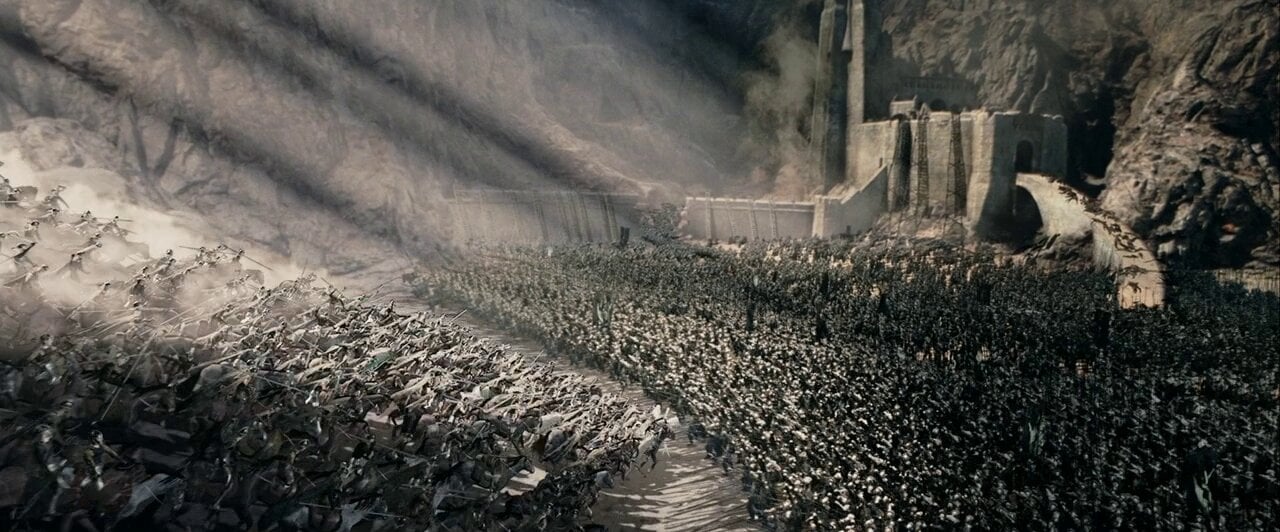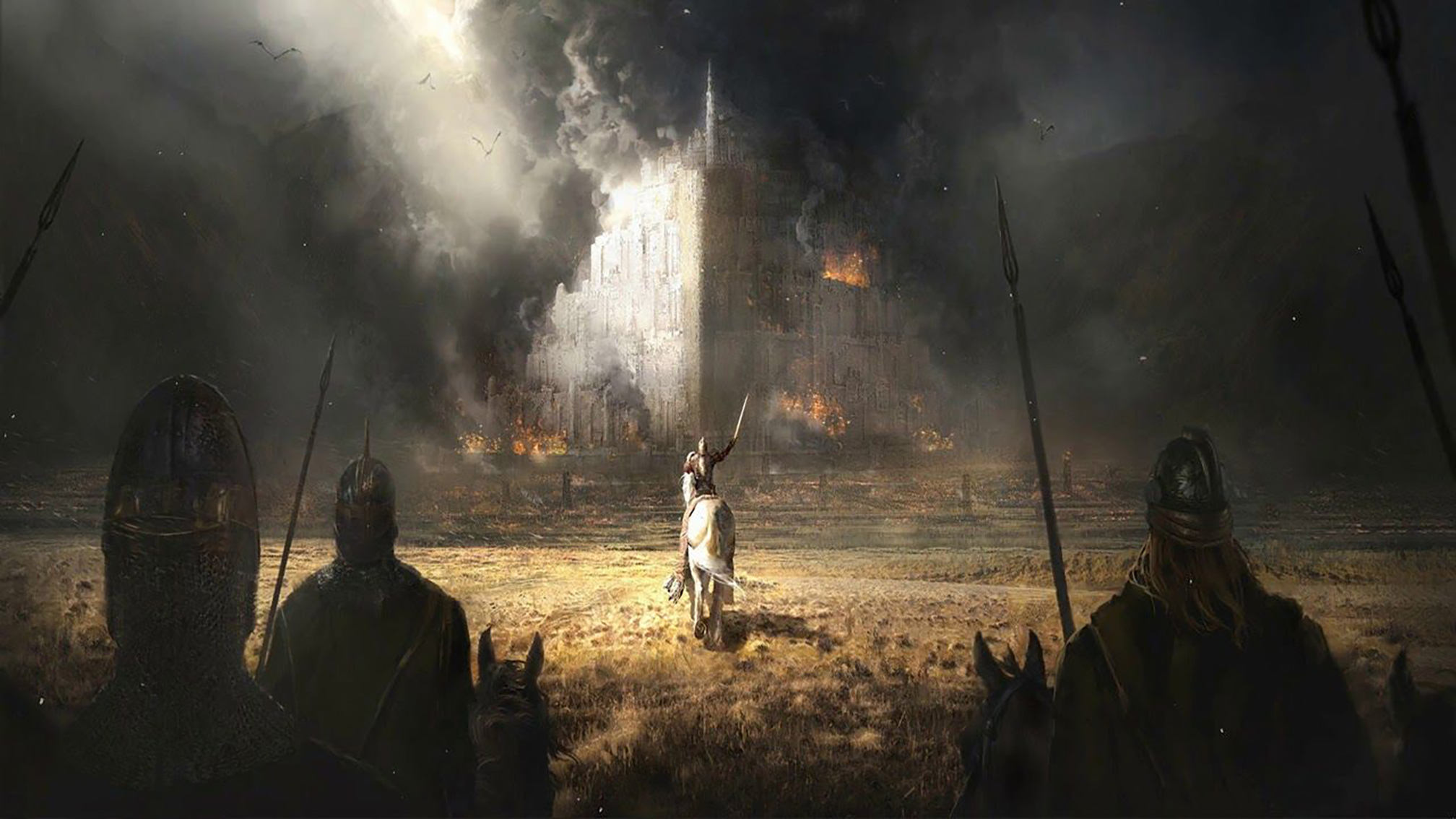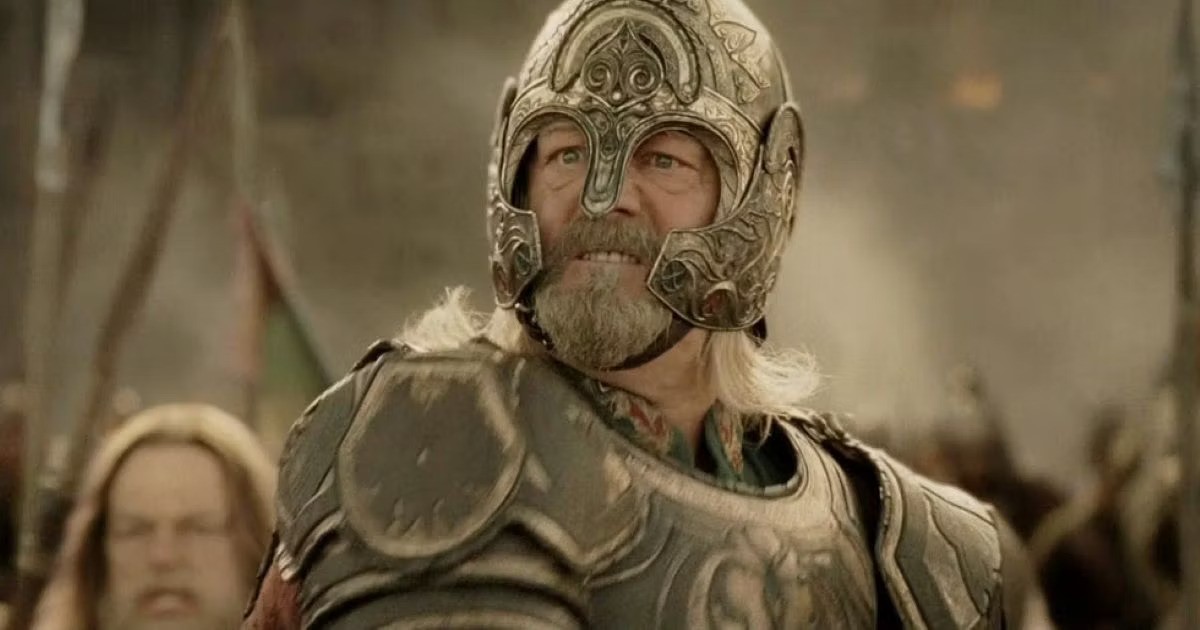LotR: King Theoden, Lord of Horses and Awesome Speeches
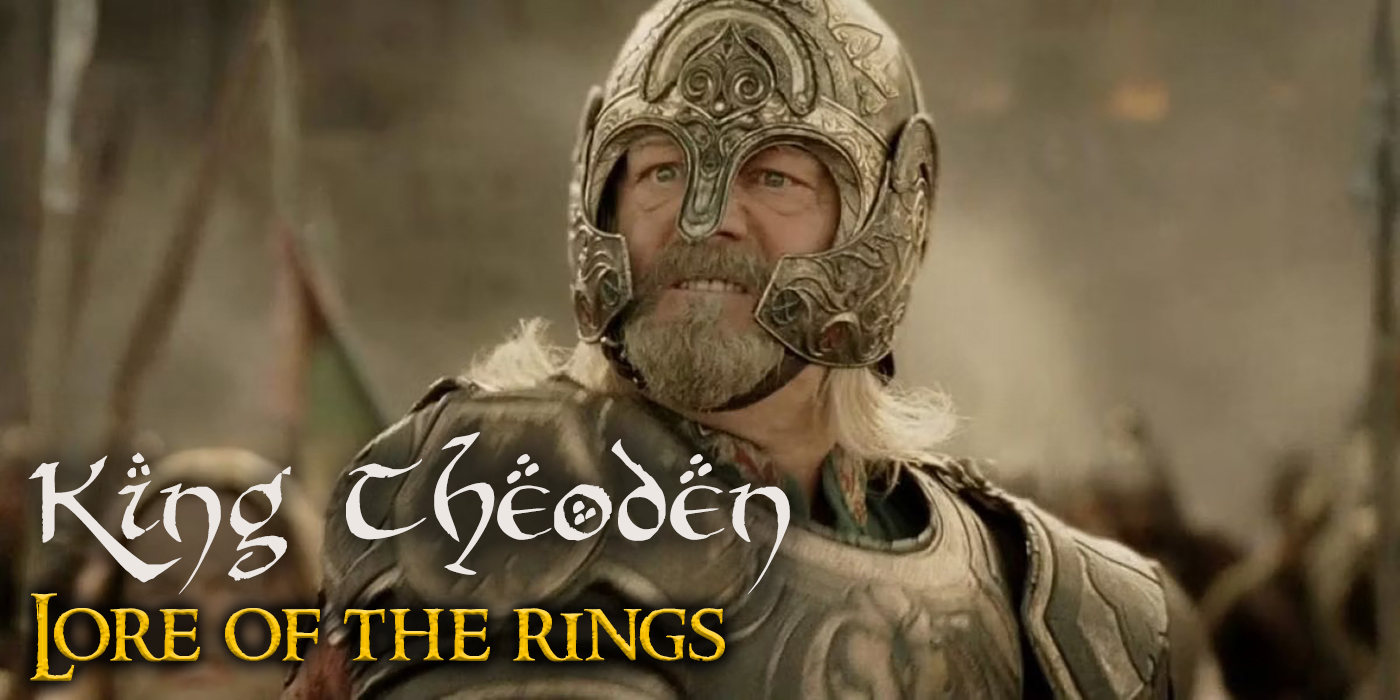
There are many great heroes in Tolkein’s Lord of the Rings, but none have had the same impact on this writer as King Théoden of Rohan.
Welcome in, fellow lovers of Lore and all things Middle-earth! Tolkein’s monumental epic has no shortage of larger-than-life characters. From evils that form from the shadows themselves to great heroes that charge into battle against insurmountable odds, readers or viewers of any inclination can find someone to root for. For me, a young boy who grew up devouring Scythian warfare history, it was always going to be someone from Rohan.
There were no small amount of choices, from the great hero Eomer to the gentle but fierce shieldmaiden Eowyn. I even have the Herugrim sword hanging in my office. However, none could capture the kingly grace of a lord of horses better than King Théoden.
Whether through his rousing battle speeches in the pages of Lord of the Rings or through the untouchable performance of Bernard Hill, Théoden always struck the delicate balance between master warrior and caring king. He may not have been the brave Aragorn, Frodo, or one of the Fellowship, but his actions echo through theirs. The blow he struck Sauron through his leadership cannot be ignored.
The Young King Théoden
Théoden was born to King Thengel of Rohan and Morwen Steelsheen of Lossanarch. Of Thengel’s five children, he was the only son, so it was natural he would assume the mantle of leadership. He spent much of his early life in Gondor, where his mother was born, and so rarely spoke Rohanese. Even when he returned to court, he mostly spoke Sindarin or Westron, as his father had before him.
When Thengel died in TA 2980, Théoden assumed the crown of Rohan. His sister, Théodwyn, lived with him in the palace of Edoras. When she and her husband died, he adopted her children, Éomer and Éowyn, raising them as his own. He had only one son, Théodred, whose mother Elfhild died giving birth to him.
Saruman’s Poison
Over the next 40 years leading up to the War of the Ring, Théoden’s health began to decline. At some point in the later years of his rule, an advisor named Gríma Wormtongue, well, wormed his way into Théoden’s employ. This vile figure was a secret plant of Saruman, and he steered the king’s eyes away from the perils befalling his kingdom.
Some believed Gríma may have even been poisoning Théoden, though it was never confirmed. While Orcs and Dunelandings tormented his lands, the one his people called Wormtongue kept the king’s eyes turned inward.
Even when the Uruk-Hai, a new breed of fighting Orc dreamt up by Saruman, appeared in his lands, Théoden did nothing. His son, Théodred, rode out to fight them in his father’s stead. He met Saruman’s forces at the Fords of Isen, but the White Wizard was ready for him. Another force outflanked the Rohirrim, and Théodred was mortally wounded.
By the time his body was returned to Edoras, he had passed away, and still, Théoden remained distracted. It wasn’t until Gandalf arrived and wrested the king’s mind from Saruman’s control that he regained his former strength. He named his nephew Éomer his heir and marched to take the fight to Saruman.
READ MORE: Who are the Istari, the Blue, Brown, Grey, and White Wizards?
Théoden and the Battle of the Hornburg
Théoden would not find the battle he sought yet, however. He met with a scout named Ceorl on the road, who advised him not to march against the force mustering in Isengard. Instead, Théoden and his company rode to the mouth of Helm’s Deep, to the Hornburg fortress.
Though his forces were woefully outnumbered, Théoden held out hope that he would prevail. With half his Rohirrim elsewhere and the armies of Isengard at his doorstep, hope seemed dire.
However, not all hope was lost. Though the great Deeping Wall that guarded the primary keep was destroyed, Théoden and his army fought on. The morning after Isengard’s arrival, the warrior Erkenbrand arrived with his host. He had been delayed and thought lost after the Battle of the Fords of Isen. Théoden led the remaining defenders to rally with Erkenbrand, and Saruman’s legions were driven off.
Muster at Dunharrow
Théoden had no time to rest on his victory, however. Following the battle, he rode with Gandalf to Isengard to see Saruman face justice. When they arrived, the fortress was in ruins, having been destroyed by the Ents of Fangorn.
He meets Merry and Pippin, and grows quite fond of them, enjoying their tales of the Shire. Knowing that if Rohan were threatened, Gondor would soon follow, Théoden sent out for a muster of his Rohirrim from across the realm. They would meet at the mountain pass of Dunharrow.
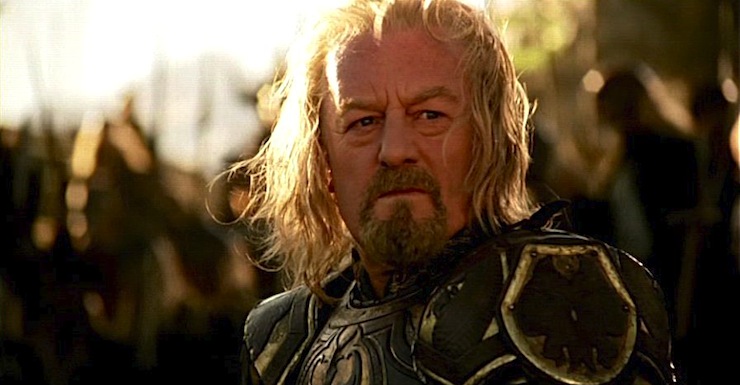
When Théoden and his company reached Dunharrow, they found the muster already well underway. Six thousand spears had answered his call and stood ready to ride to the aid of Steward Denethor.
That same night, a messenger from Gondor arrived and presented the king with a red arrow. The message was clear; Gondor was besieged, and Rohan must fulfill the oaths of its ancient king. That same morning, the legions of Rohan rode to Pelennor field outside the white city of Minas Tirith
“Arise, Arise, Riders of Théoden!”
Arriving at Minas Tirith to a battle already well in progress, Theoden assembled his armies for a devastating charge. Knowing the hopeless odds he and the warriors of Gondor faced, he nonetheless rallied his warriors with a rousing speech. No one says it better than master Tolkein himself:
Arise, arise, Riders of Théoden! Fell deeds awake: fire and slaughter! Spears shall be shaken, Shields shall be splintered, a sword-day, a red day, ere the sun rises! Ride now, ride now! Ride to Gondor! Death! Death! Death! Forth Eorlingas!
J.R.R. Tolkein, Return of the King
The charge that follows in the films is one of my favorite moments in all of cinema. The brilliant music by Howard Shore, combined with the charge of the horsemen against the rallied hordes of Sauron, still brings tears to my eyes. The music was even played at my wedding (I’m a bit of a superfan).
Théoden avails himself with glorious splendor in the battle that follows. He slays a mighty Southron warlord and an important banner bearer, as well as dozens of Orcs and Uruks. It isn’t until he comes against the doom of Minas Morgul itself that he is finally felled.
Last King of the House of Eorl
When faced with the might of the Witch King of Angmar, even the mighty Théoden was felled. However, before the creature could strike the final blow, Éowyn and Merry, who had disguised themselves to fight alongside the Rohirrim, intervened.
Thanks to a very technical interpretation of the Witch King’s taunt, the shieldmaiden was able to slay Sauron’s general. Unfortunately, Théoden’s wounds were too dire, and he passed away in Éowyn’s arms.
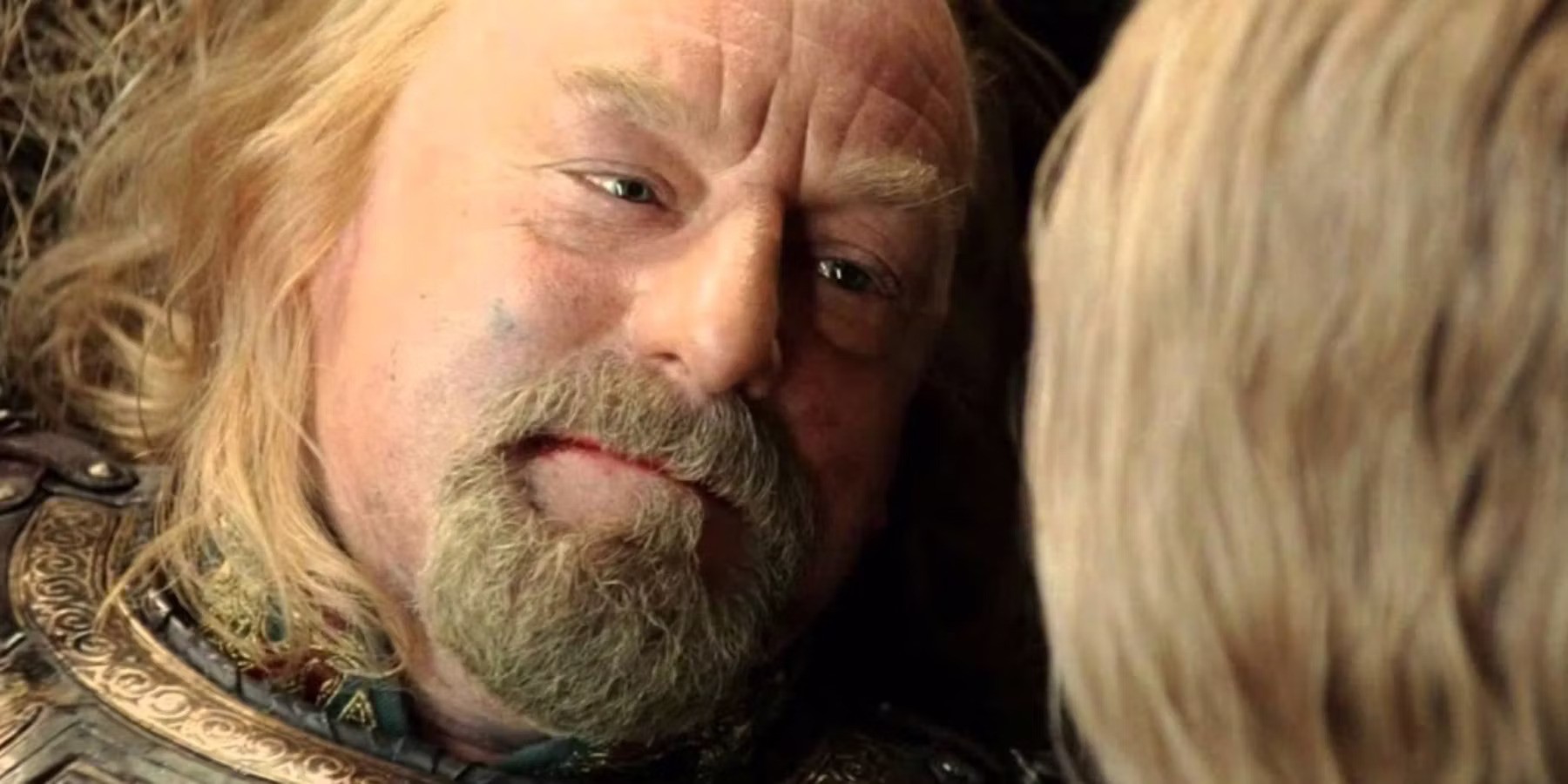
With his death, the line of the second king of Eorl was ended. Éomer assumed the throne of Rohan, and Éowyn married Faramir to become Lady of Ithilien. Théoden’s body was taken back to Rohan and buried with his forebears in Barrowfield. Many songs were sung about his rule, and his loss was felt keenly by all the people of Rohan.
Bernard Hill as King Théoden: Playing the Master of the Rohirrim
Though several talented actors have portrayed Théoden in media over the years, my King Théoden will always be the incomparable Bernard Hill. He captured the softness and the fury of Théoden in a way that I doubt any performer will be able to emulate. His real-life death was as sad as Théoden’s own death in the films to many fans, myself included.

